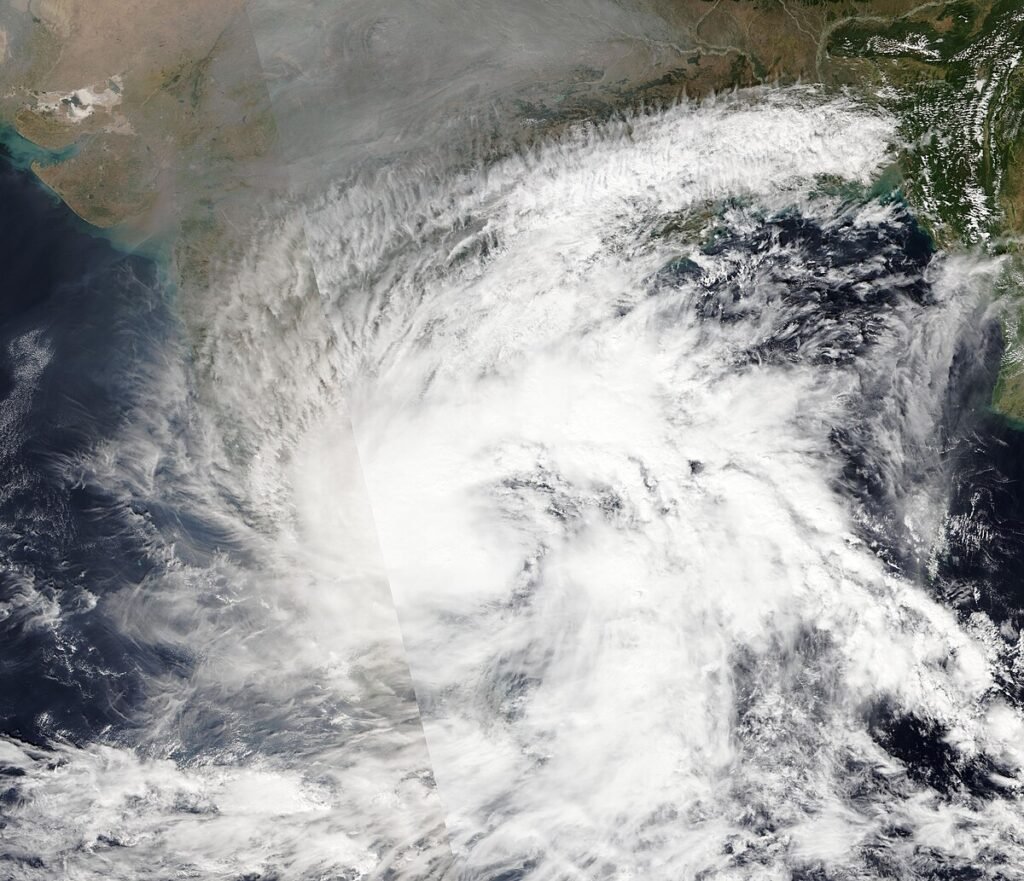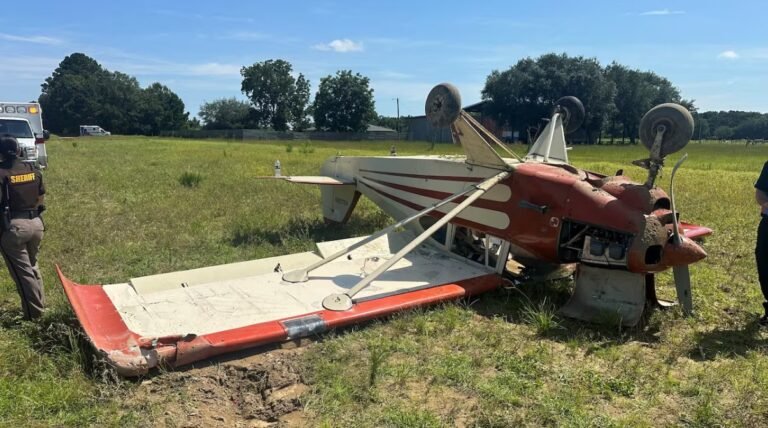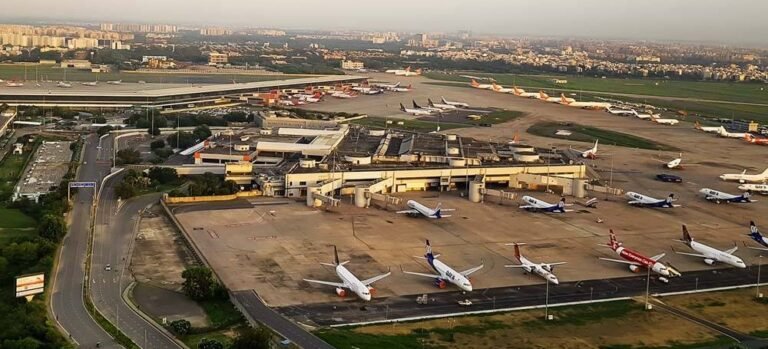Image from Wikipedia
Puducherry, 30 November 2024: Cyclone Fengal, a severe cyclone that formed over the Bay of Bengal, made landfall on Saturday inflicting devastation over southern India. Wind gusts of up to 90 km/h and torrential rainfall caused severe damage in Tamil Nadu, Puducherry, and parts of Andhra Pradesh and Karnataka. The storm’s effects continued until December 1, leaving a trail of devastation that significantly impacted everyday life, transportation, and agriculture.
Air Travel Disruptions
The impact of Cyclone Fengal on the aviation sector was substantial. There were significant inconveniences on November 30 when Chennai International Airport, a vital hub for both local and international flights, had to briefly close.
Over fifty flights had been canceled by the end of November, including more than twenty on November 30 and thirteen on November 29. Important connections to places like Hyderabad, Bhubaneswar, Coimbatore, and Trichy were among the planes that were canceled. Some passengers had to wait up to twelve hours for updates, while airline employees offered little assistance. On December 1, aircraft operations resumed after the storm passed; nonetheless, delays persisted, highlighting how vulnerable air transport is to severe weather.
The consequences extended to other airports. Rajiv Gandhi International Airport in Hyderabad reported roughly 20 flights disrupted, with some being redirected to adjacent airports owing to operational issues caused by the storm’s aftermath. Airlines like IndiGo and Air India issued urgent travel warnings, alerting passengers of possible cancellations and delays, exacerbating the irritation of those left stranded.
An IndiGo flight during Cyclone Fengal’s effect on Chennai faced extremely difficulty landing at Chennai International Airport. The aircraft made initial contact with the runway, but the cyclone’s strong crosswinds forced the aircraft to abandon its landing. The event was captured on camera and went viral, highlighting the challenge of piloting the aircraft in high gusts. This demonstrated the threat presented by the cyclone’s fierce gusts, which may reach up to 90 km/h.
It was extremely difficult for pilots and airport employees to maintain safety under such circumstances, which further highlighted the burden on air travel and airport operations. The event also highlighted the wider airport difficulties, when ground operations were seriously hindered and other planes were either canceled or delayed.
Watch this startling footage of an IndiGo airplane having trouble landing
Video from X
Railway and Road Disruptions
The storm also caused significant disruptions to Southern Railway services, notably on the important Chennai-Madurai corridor. Trains were delayed or cancelled due to water and debris on the rails. Furthermore, numerous main highways were inundated, causing substantial traffic congestion. Local officials moved fast to clear debris, although many places remained inaccessible for lengthy periods. This interruption paralleled greater infrastructure issues across the area, with critical services unable to function properly.
Impact on Local Communities
Agricultural and fishery villages suffered significant damage as a result of the storm. Over 800 acres of paddy fields in Tamil Nadu were submerged, causing farmers to suffer large losses. With more than 200 boats impacted by the storm’s strong winds and choppy waves, fishermen in Tamil Nadu and Puducherry suffered significant losses. In order to prevent more damage, several of these vessels were forced to seek refuge inland. To help these areas recover from the storm’s immediate effects, local officials have responded by distributing more than 500 tons of humanitarian materials.
IMD Alerts and Ongoing Dangers
With Cyclone Fengal intensifying with wind gusts of up to 100 km/h in certain places, the India Meteorological Department (IMD) issued red alerts. As a precaution, several schools in the impacted areas were closed, and fishermen were urged to stay out of the water. Tamil Nadu remains under an orange alert as of December 2, 2024, with heavy rainfall and projected wind gusts of 60 to 80 km/h. Since there is still a chance of more floods and inconveniences, authorities are keeping a close eye on the situation.
The IMD has issued a yellow advisory for Karnataka, predicting light to moderate rainfall and thunderstorms on December 2 and 3 in areas like Dakshina Karnataka and Udupi. Strong gusts and a lot of rain are predicted during the storm’s aftermath, with some areas perhaps seeing as much as 50 mm of precipitation.
Impact on Agriculture and Fishery
Cyclone Fengal has had a severe effect on agriculture. More than 800 acres of rice fields have been inundated, causing significant crop damage and losses for local farmers, with financial losses estimated at millions of rupees. Fishermen have reported substantial damage to their boats, which are critical to their livelihoods. Over 200 boats have been damaged, causing many fishermen to move their boats inland to avoid more loss. Estimates show a loss of more than ₹50 crore for these communities.
Damage from Cyclone Fengal has persisted across southern India. Flooding has affected over 500,000 people, causing them to be relocated and losing their source of income. The area is experiencing a protracted recovery process as a result of ongoing power outages, blocked roads, and significant disruptions to transportation infrastructure. Deliberate efforts are being made by local officials to remove the debris, restore necessary services, and help people in need.
In light of the persistent weather concerns, the IMD is advising locals to remain indoors and use caution as it continues to monitor the evolving situation. It is anticipated that the impacted areas would need significant assistance during the protracted and challenging recovery process from this devastating storm.
Follow Aviation Today for latest news about aviation!





















